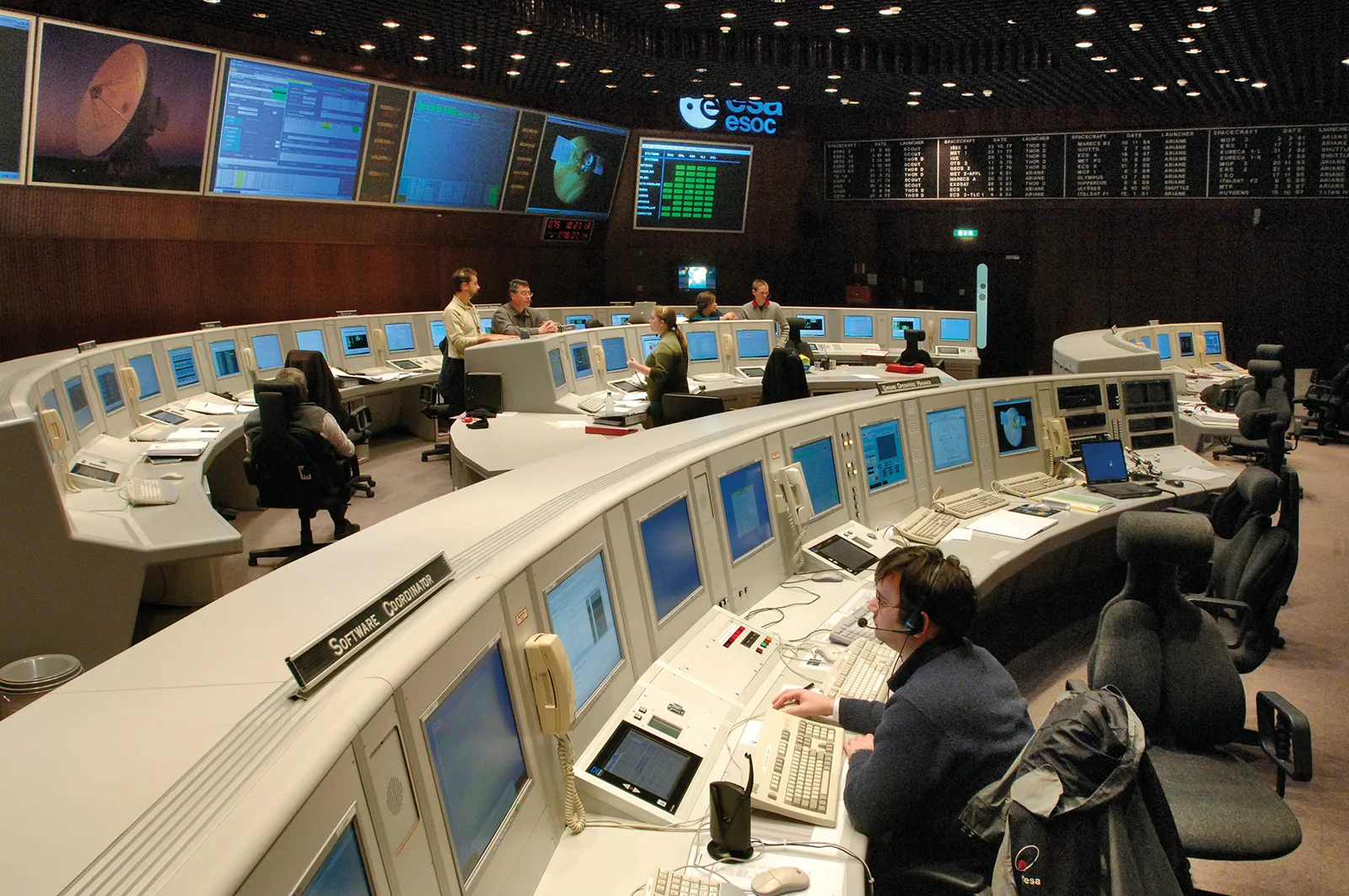
Space agencies like NASA, ESA, and Roscosmos have always captivated the minds and imaginations of people around the world. These organizations are responsible for exploring the vast expanse of the universe, conducting groundbreaking research, and pushing the boundaries of human knowledge. From awe-inspiring space missions to groundbreaking discoveries, these agencies continue to inspire wonder and fascination.
In this article, we will delve into 12 captivating facts about space agencies. We will explore the incredible achievements, remarkable projects, and fascinating insights that have been achieved by organizations such as NASA, ESA, and Roscosmos. So buckle up and get ready to embark on an exciting journey through the cosmos as we unveil the awe-inspiring work of these space agencies.
Key Takeaways:
- Space agencies like NASA, ESA, and Roscosmos have achieved incredible feats, from landing humans on the moon to discovering water ice on Mars, expanding our understanding of the universe.
- These agencies collaborate to operate the International Space Station, explore distant planets, and pave the way for future space exploration, inspiring us to reach for the stars.
NASA’s Apollo 11 mission landed humans on the moon.
On July 20, 1969, NASA’s Apollo 11 became the first manned mission to successfully land on the moon, with Neil Armstrong famously declaring, “That’s one small step for man, one giant leap for mankind.” This historic event marked a significant milestone in space exploration.
ESA’s Rosetta mission landed a spacecraft on a comet.
ESA’s Rosetta mission, launched in 2004, made history by landing the Philae spacecraft on comet 67P/Churyumov-Gerasimenko in It provided valuable insights into the composition and origins of comets, expanding our knowledge of the early solar system.
The International Space Station (ISS) is a joint project involving multiple space agencies.
NASA, ESA, Roscosmos, and other space agencies collaborate to operate and maintain the International Space Station. This orbital laboratory has been continuously inhabited since November 2000 and serves as a platform for scientific research and international cooperation.
NASA’s Hubble Space Telescope has revolutionized our understanding of the universe.
Launched in 1990, the Hubble Space Telescope has captured breathtaking images of distant galaxies, nebulae, and other celestial objects. Its observations have contributed to breakthrough discoveries and deepened our understanding of the cosmos.
ESA’s ExoMars mission aims to search for signs of past or present life on Mars.
The ExoMars mission, a joint effort between ESA and Roscosmos, is focused on exploring Mars and searching for evidence of microbial life. It comprises multiple missions, including the Trace Gas Orbiter and the Rosalind Franklin rover, set to launch in the coming years.
Roscosmos holds the record for the longest continuous human presence in space.
Roscosmos broke the record for the longest continuous human presence in space, with cosmonaut Valery Polyakov spending 437 days aboard the Mir space station from 1994 to This feat demonstrated Russia’s dedication to long-duration space missions.
NASA’s Voyager 1 spacecraft has left the solar system.
Launched in 1977, NASA’s Voyager 1 spacecraft ventured beyond the boundaries of our solar system in 2012, becoming the first human-made object to enter interstellar space. It continues to transmit valuable data about the interstellar medium.
ESA’s Mars Express discovered subsurface water ice on Mars.
In 2004, ESA’s Mars Express mission confirmed the presence of water ice beneath the surface of Mars, providing crucial insights for future exploration and potential colonization efforts.
Roscosmos sent the first human, Yuri Gagarin, into space.
In 1961, Roscosmos made history by launching Yuri Gagarin aboard the Vostok 1 spacecraft, making him the first human to travel to space. This groundbreaking achievement paved the way for future manned space missions.
NASA’s Kepler space telescope discovered thousands of exoplanets.
Launched in 2009, NASA’s Kepler space telescope revolutionized our understanding of exoplanets by discovering thousands of distant planetary systems. Its observations have provided valuable insights into the prevalence of planets beyond our solar system.
ESA’s Cassini-Huygens mission explored Saturn and its moons.
The Cassini-Huygens mission, a collaboration between ESA and NASA, provided unprecedented insights into Saturn and its moons. It revealed the remarkable complexity and beauty of the Saturnian system, including the intriguing moon Titan.
Roscosmos plans to establish a lunar base by 2030.
Roscosmos has ambitious plans to establish a permanent human presence on the moon by This venture aims to pave the way for future lunar exploration and potential deep-space missions.
These 12 captivating facts about space agencies demonstrate the remarkable achievements and contributions made by organizations such as NASA, ESA, and Roscosmos in advancing our knowledge of the universe. Through their relentless pursuit of discovery and innovation, these agencies inspire us to reach for the stars and unlock the secrets of the cosmos.
Conclusion
In conclusion, exploring the vast unknowns of space is no easy feat, but space agencies such as NASA, ESA, and Roscosmos have been at the forefront of these endeavors. Through their tireless efforts and groundbreaking missions, they have expanded our knowledge of the cosmos and brought us closer to uncovering the secrets of the universe.From sending astronauts to the International Space Station to launching spacecraft to distant planets, these space agencies have pushed the boundaries of human exploration and scientific discovery. They have revolutionized our understanding of space and inspired countless individuals to pursue careers in STEM fields.As technology continues to advance, we can only expect these agencies to achieve even greater milestones in the years to come. Whether it’s unraveling the mysteries of dark matter or searching for signs of extraterrestrial life, one thing is certain – our journey to the stars is far from over, and space agencies will continue to lead the way.
FAQs
1. What does NASA stand for?
NASA stands for the National Aeronautics and Space Administration.
2. How many space agencies are there?
There are several space agencies in the world, but some of the most prominent ones include NASA, ESA (European Space Agency), and Roscosmos (Russian Space Agency).
3. What are some notable missions by these space agencies?
NASA is known for missions like the Apollo moon landings, the Hubble Space Telescope, and the Mars Rover missions. ESA has contributed to projects like the International Space Station and the Rosetta mission. Roscosmos is famous for launching manned missions to the International Space Station and its spacecraft, such as Soyuz and Progress.
4. How do space agencies collaborate?
Space agencies often collaborate on international projects, such as the International Space Station. They share resources, expertise, and technology to achieve common goals in space exploration.
5. Can anyone become an astronaut?
Becoming an astronaut requires extensive training and qualifications. Candidates typically need a background in science, engineering, or aviation, as well as excellent physical and mental health.
6. How important are space agencies in our everyday lives?
Space agencies contribute to various aspects of our lives, including weather forecasting, communication satellites, GPS systems, and understanding climate change. They also inspire and educate future generations, paving the way for future scientific advancements.
Space agencies continue pushing boundaries, exploring the vast expanse of our universe. Captivating facts about their groundbreaking missions await your discovery, from space agency achievements to efforts in tackling space debris. Intriguing details about space debris removal missions and the challenges posed by orbital debris will leave you eager for more. Embark on a journey through the cosmos, uncovering the awe-inspiring work of space agencies and their relentless pursuit of knowledge.
Was this page helpful?
Our commitment to delivering trustworthy and engaging content is at the heart of what we do. Each fact on our site is contributed by real users like you, bringing a wealth of diverse insights and information. To ensure the highest standards of accuracy and reliability, our dedicated editors meticulously review each submission. This process guarantees that the facts we share are not only fascinating but also credible. Trust in our commitment to quality and authenticity as you explore and learn with us.


